Is It Common for Police Officers to Carry Binoculars?
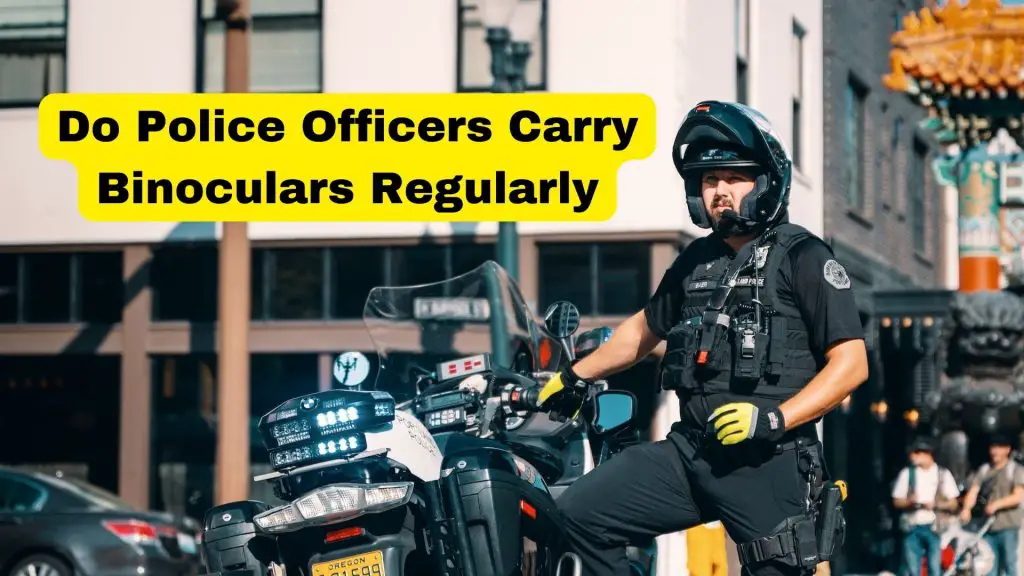
Have you ever wondered if it’s common for police officers to carry binoculars?
What are some reasons why they might need them, and what type of binoculars do they use?
Join me as we dive into these questions and discover more about the important role binoculars play in policing.
Reasons Why Police Officers Carry Binoculars
It is quite common for police officers to use binoculars, but they do not always carry them in hand. Instead, they often keep binoculars in their duty bags so that they have access to them when needed.
Now let’s see the reasons why they can be an important tool for policing purposes.
So;
Police officers may use binoculars for a variety of reasons, including surveillance and reconnaissance purposes, traffic enforcement and accident investigation, and search and rescue missions.
Let’s discuss each in detail:
Surveillance and reconnaissance purposes
Binoculars can be a valuable asset in conducting surveillance operations. They allow officers to observe activities from a distance, reducing the risk of being seen or heard.
This is particularly useful in investigations involving suspected criminal activity, where it’s important to gather evidence without alerting suspects.
In addition to surveillance, binoculars can also be useful in reconnaissance missions.
For example, officers may use them to survey a building or area before conducting a raid or to gather information about a location from a safe distance.
Personal Safety
In some situations, criminals may resort to shooting when they notice the presence of police officers.
However, binoculars can assist law enforcement in maintaining a safe distance from the perpetrators while keeping a watchful eye on their activities.
The binoculars give them the ability to observe and monitor the criminals’ actions and determine the optimal time to engage them.
Traffic enforcement and accident investigation
Binoculars are also commonly used by police officers for traffic enforcement and accident investigation.
They can be used to monitor traffic from a distance, allowing officers to spot violations such as speeding or distracted driving.
In accident investigations, binoculars can help officers gather more information about the scene. They can be used to observe tire marks or other evidence that may not be visible from ground level.
Search and rescue missions
Binoculars are also an important tool for police officers involved in search and rescue missions.
They can be used to scan large areas, such as wooded areas or bodies of water, in search of missing persons.
In these situations, binoculars with higher magnification and larger objective lenses can be particularly useful, as they allow officers to see further and more clearly.
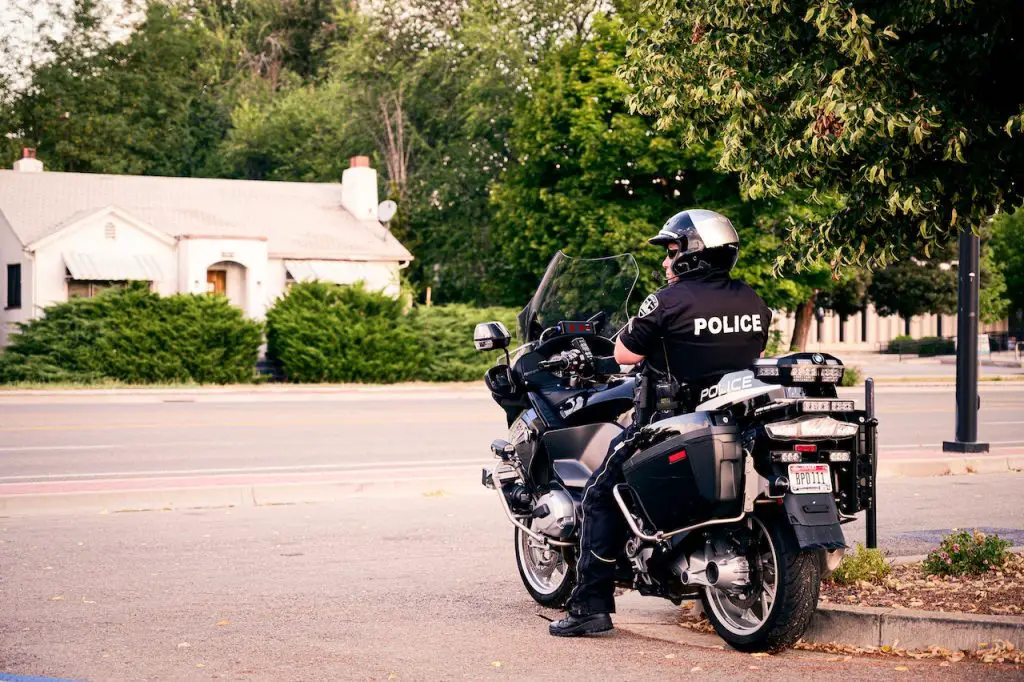
Is it Common for Regular Police Officers to Carry Binoculars in their hands while on Duty?
It is not common for police officers to carry binoculars in their hands regularly.
However, many police officers carry binoculars in their duty bags or patrol cars, so they can use them when necessary.
Can Police Use Binoculars without probable cause to view suspects in Public Areas?
The answer is yes, as there is no expectation of privacy in public places.
However, using binoculars to look into windows or backyards is more problematic and may require justification.
If what the officers observe with binoculars could be seen with the naked eye from a lawful vantage point, it would be considered lawful.
But if the only way to see what was observed was with binoculars, it would be considered a search under the Fourth Amendment.
The Fourth Amendment is a part of the United States Constitution that protects citizens against unreasonable searches and seizures by the government, including law enforcement.
It requires that search and arrest warrants be based on probable cause and issued by a judge or magistrate.
The Fourth Amendment also protects citizens’ privacy rights by requiring that searches and seizures be conducted with a warrant, or with a narrowly defined exception to the warrant requirement and that the warrant or exception be based on probable cause.
Types of Binoculars Commonly Used by Police Officers
Binoculars come in a variety of shapes and sizes, each with its own strengths and weaknesses.
Police officers may use different types of binoculars depending on their specific needs and situations.
Here are three types of binoculars commonly used by police officers:
Compact Binoculars
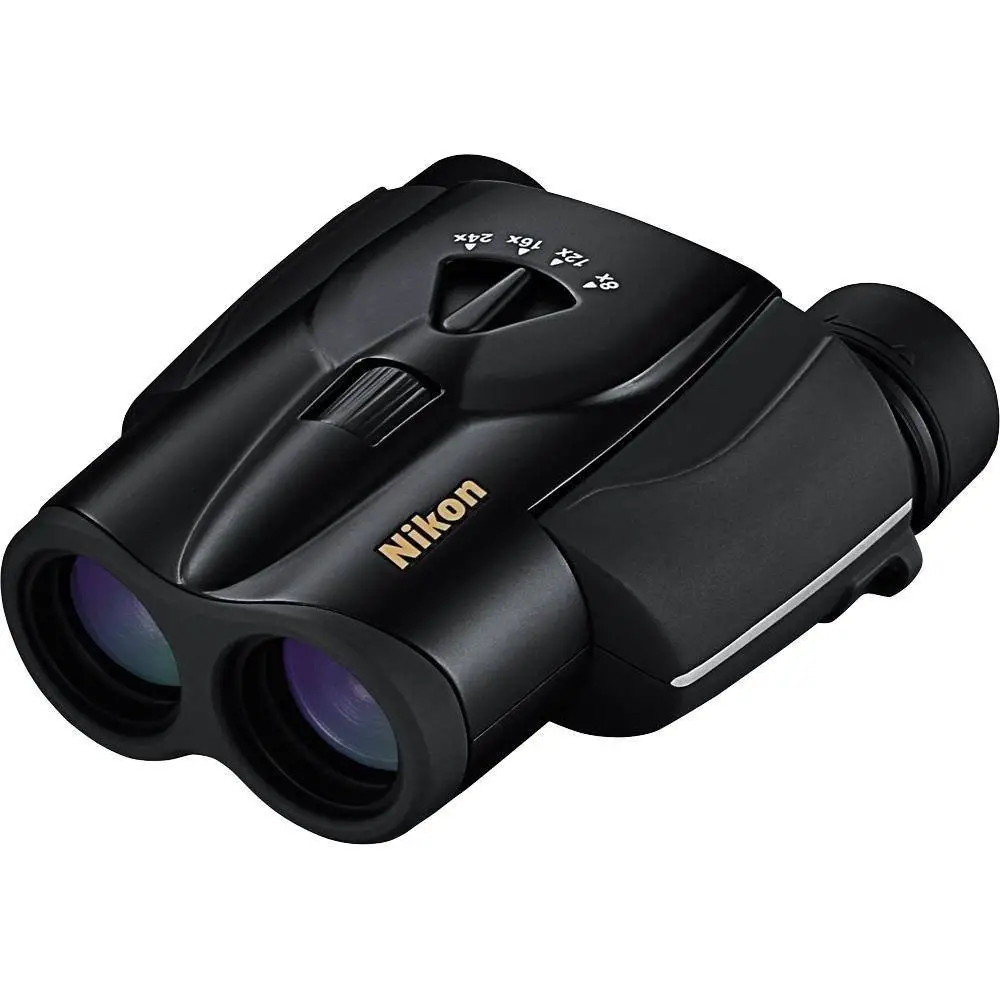
Compact binoculars are small and lightweight, making them easy to carry around.
They are often used by police officers who need to be mobile and don’t want to carry a lot of extra weight.
Compact binoculars usually have smaller objective lenses, which means they don’t gather as much light as full-sized binoculars.
However, they can still be useful in daylight situations where officers need to observe from a distance.
Full-Sized Binoculars
Full-sized binoculars like these are larger and heavier than compact binoculars.
They typically have larger objective lenses, which allows them to gather more light and provide a brighter and clearer image.
Full-sized binoculars are often used in situations where officers need to observe from a stationary position, such as during surveillance or stakeout.
They can also be useful in low-light conditions or at night.
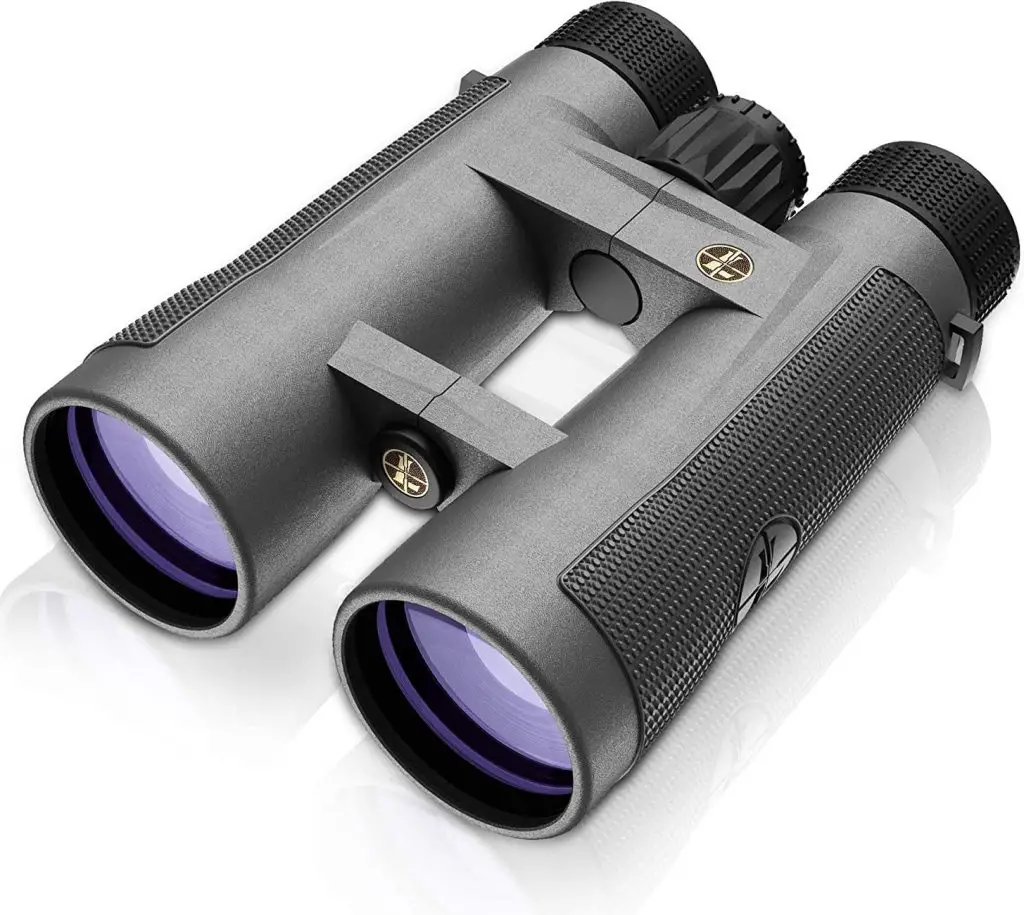
A Full Size 10×42 Binocular
Binoculars with Laser Rangefinders
Binoculars with laser rangefinders are becoming increasingly popular among police officers.
These specialized binoculars allow officers to not only see faraway objects with clarity, but also to accurately measure the distance to those objects using a laser rangefinder.
This can be especially useful in law enforcement situations where quick and accurate distance measurements are necessary, such as during search and rescue missions or tactical operations.
However, the cost of these binoculars can be high and training may be necessary to use them effectively.
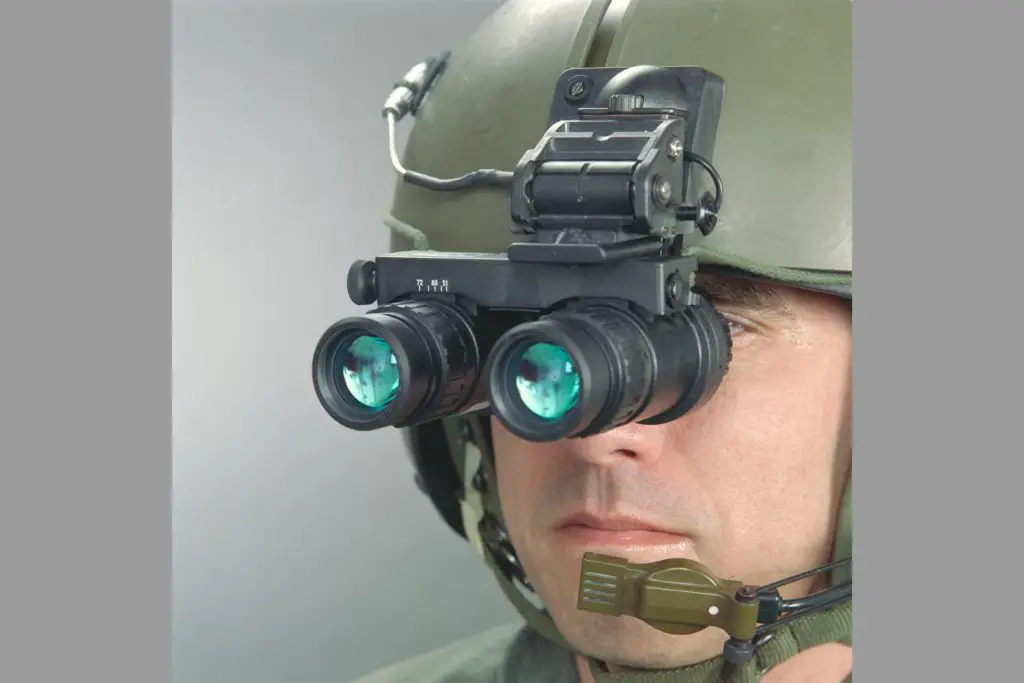
Night Vision Binoculars
Night vision binoculars are designed to allow officers to see in the dark. They use light gathering and amplification technology to amplify the available light, making it possible to see in complete darkness.
Night vision binoculars are often used by police officers in situations where they need to conduct surveillance or operate in low-light conditions.
They can be particularly useful in situations where officers need to approach a suspect or location stealthily.
Thermal Binoculars
Thermal binoculars detect infrared radiation emitted by objects and create an image based on the heat signature of the scene.
Hot objects are displayed as white and cooler objects as black. Police officers use thermal binoculars to see in low-light conditions and detect hidden compartments, disturbed surfaces, fugitives, and other hazards.
They are also used to maintain perimeters, for search and rescue operations, and to monitor marine activity.
The technology contributes to officer safety and helps to gather evidence. However, it cannot see through walls or glass.
Training and guidelines for using binoculars
Officers who carry binoculars may undergo specialized training to ensure they understand how to use them properly.
This training includes understanding how to focus the lenses, adjust the diopter, and use any special features, such as night vision.
Safety Guidelines for Using Binoculars
Using binoculars can be dangerous if not done properly.
For example, looking directly at the sun through binoculars can cause permanent damage to the eyes. To prevent accidents and injuries, police officers must follow specific safety guidelines. These include:
- Never look at the sun through binoculars
- Keep the binoculars away from the face until they are properly focused
- Use a neck strap to prevent dropping the binoculars
- Store binoculars in a secure location when not in use
Best Practices for Maintaining and Storing Binoculars
Binoculars can last for years if they are properly maintained and stored. Some best practices for taking care of binoculars include:
- Regularly cleaning the lenses and body with a soft, dry cloth
- Storing the binoculars in a dry, cool location to prevent moisture buildup
- Avoiding extreme temperatures, which can damage the lenses and other components
- Storing the binoculars in a protective case or pouch when not in use
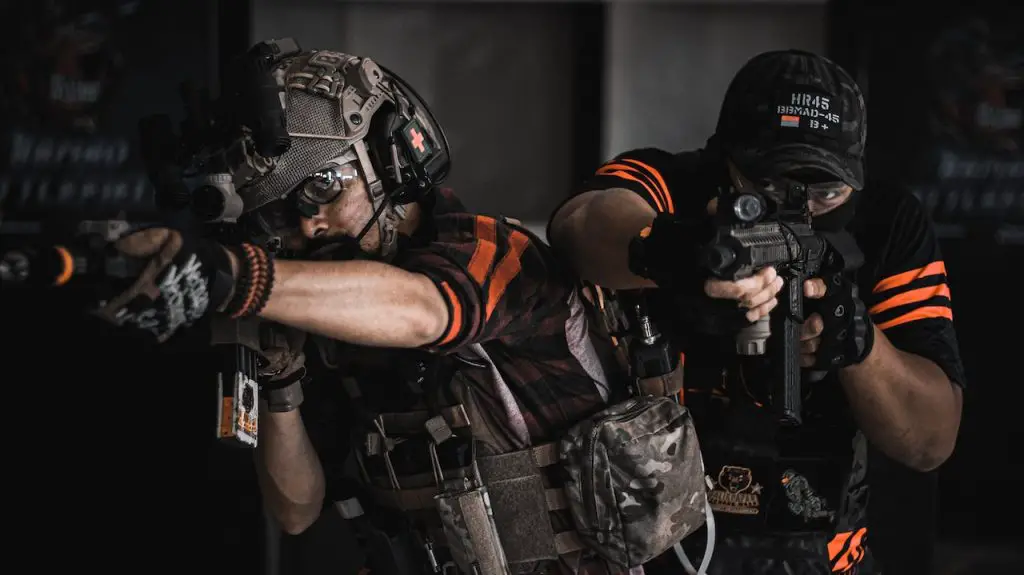
Examples of Police Departments & Situations In Which They May Use Binoculars
Urban police departments
Binoculars are particularly useful for urban police departments because of the density of buildings and the need for surveillance.
Police officers in cities like New York, London, and Tokyo regularly use binoculars to observe crowds and monitor high-rise buildings.
Binoculars are also used during traffic enforcement to catch speeding and reckless drivers.
Rural police departments
Rural police departments also find binoculars helpful in their operations. They are especially useful in areas with large expanses of land, where officers may need to observe suspects or illegal activities from a distance.
For example, officers in Montana may use binoculars to monitor poaching activities in remote areas.
Specialized units such as SWAT and K-9 teams
Specialized police units like SWAT and K-9 teams also utilize binoculars in their operations.
SWAT teams use binoculars during high-risk operations like hostage situations to gather intelligence and monitor the area.
K-9 units use binoculars to observe suspects from a distance before releasing the dogs.
In all of these examples, binoculars are used to enhance the situational awareness and safety of police officers while performing their duties.
Conclusion
Binoculars are a valuable tool for police officers in their daily operations. They provide an enhanced level of situational awareness that allows officers to serve better and protect their communities.
From urban police departments to rural units and specialized teams like SWAT and K-9 units, binoculars are widely used by police forces worldwide.
Proper training, safety guidelines, and maintenance are essential to ensuring the effectiveness and longevity of binoculars in law enforcement.
Resource: www.ojp.gov/ncjrs/virtual-library/abstracts/telescopes-binoculars-and-fourth-amendment
